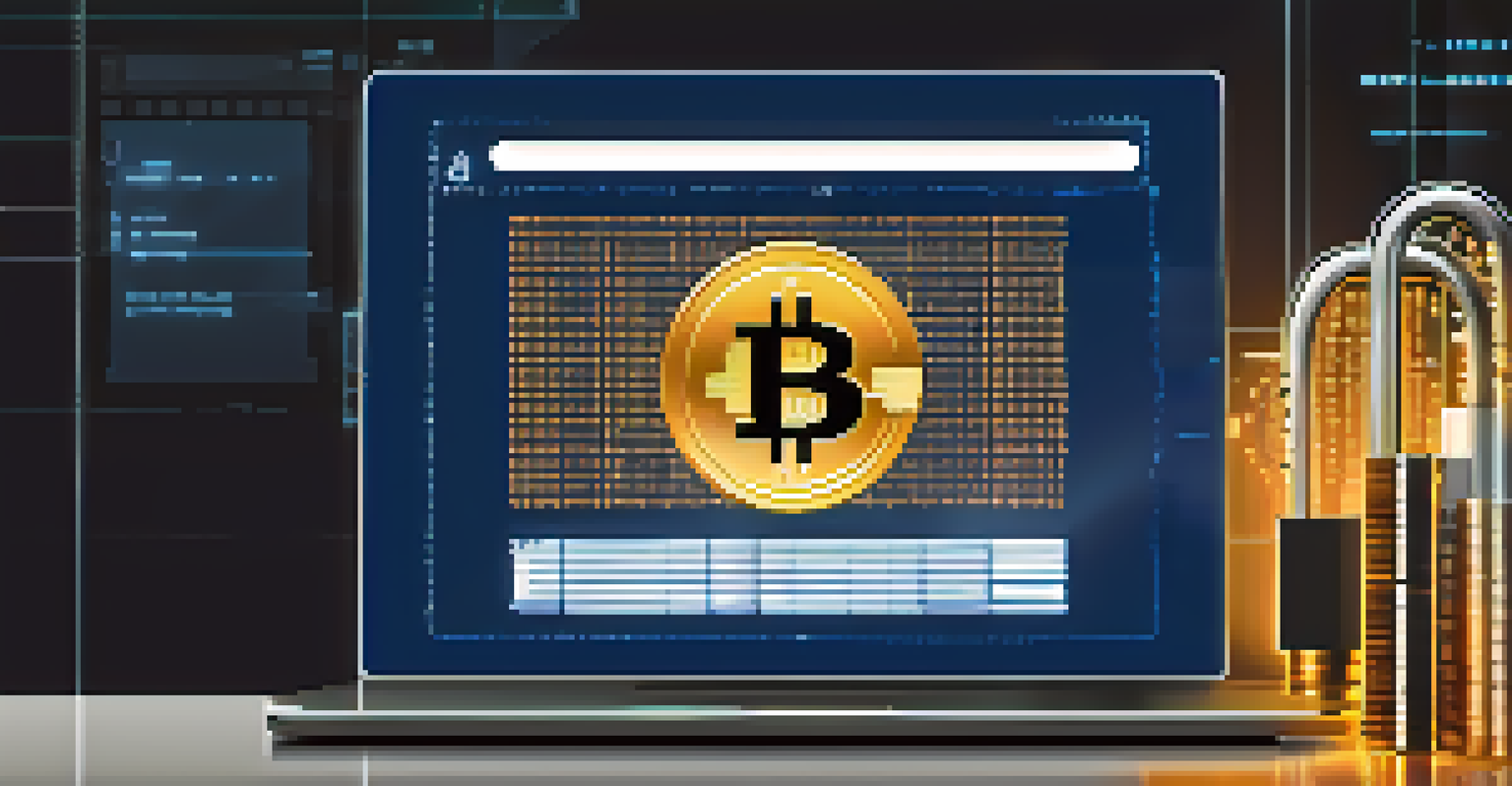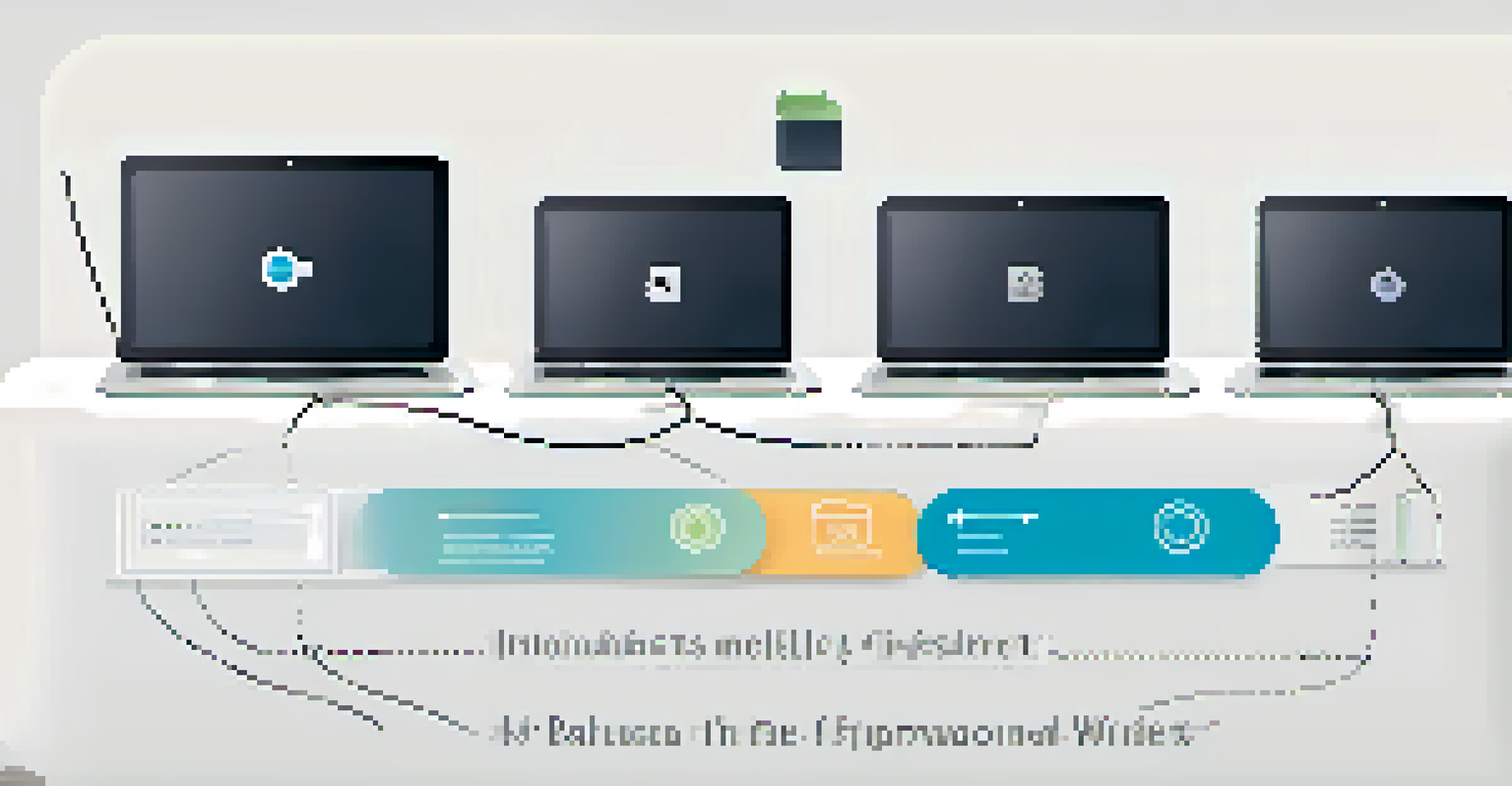Desktop Wallets for Bitcoin: A Comprehensive Overview

Understanding Desktop Wallets: What Are They?
Desktop wallets are software applications that you install on your computer to manage your Bitcoin. Unlike online wallets, which are hosted on the cloud, desktop wallets give you more control over your private keys, enhancing your security. They are typically user-friendly and suitable for both beginners and experienced users looking for a more robust option.
The best way to store your Bitcoin is to make sure you have control over your private keys.
One of the main advantages of desktop wallets is that they allow for easier transaction management. You can send, receive, and store your Bitcoin directly from your computer, making the process more seamless. Additionally, many desktop wallets offer advanced features like multi-signature support and integration with hardware wallets, which can further enhance security.
However, it’s important to note that desktop wallets are only as secure as the device they’re installed on. If your computer is compromised by malware or viruses, your wallet could be at risk. Therefore, maintaining good computer security practices is essential when using a desktop wallet.
Key Features to Look for in a Desktop Wallet
When choosing a desktop wallet, several key features can greatly affect your experience. First and foremost, look for wallets with strong encryption and security measures, such as two-factor authentication. These features help protect your funds from unauthorized access and potential hacks.

Another important feature is user-friendliness. A good desktop wallet should have an intuitive interface that makes it easy to navigate and manage your Bitcoin. This is especially crucial for newcomers who may feel overwhelmed by complex designs and jargon.
Desktop Wallets Enhance Security
Desktop wallets provide users with greater control over their private keys, improving security compared to online wallets.
Additionally, consider whether the wallet allows for regular updates and improvements. The cryptocurrency landscape changes rapidly, and having a wallet that stays up-to-date with security patches and new features can significantly enhance your overall experience.
Popular Desktop Wallets for Bitcoin
There are several well-known desktop wallets that cater to Bitcoin users. Electrum is a popular choice known for its speed and lightweight nature, making it easy to use on various devices. It offers advanced features like support for hardware wallets and custom transaction fees, appealing to both beginners and experienced users.
Security is not a product, but a process.
Another noteworthy option is Exodus, which combines a beautifully designed interface with powerful features. It supports multiple cryptocurrencies and offers built-in exchange capabilities, allowing users to swap assets without leaving the wallet. This makes it an attractive choice for those looking to manage a diverse cryptocurrency portfolio.
Lastly, Bitcoin Core, the original Bitcoin wallet, provides full node functionality. This means you download the entire blockchain, giving you maximum control and privacy. However, it requires significant storage space and bandwidth, making it more suitable for advanced users who prioritize decentralization.
The Importance of Security in Desktop Wallets
Security is paramount when it comes to managing your Bitcoin, and desktop wallets are no exception. With your private keys stored on your device, they can be vulnerable to various threats if not adequately protected. Therefore, using strong passwords and enabling additional security features is crucial to safeguarding your funds.
Moreover, regular software updates play a vital role in maintaining security. Developers often release patches to address vulnerabilities and improve the wallet's functionality. By keeping your wallet updated, you reduce the risk of falling victim to new threats that could compromise your assets.
Key Features Improve User Experience
Choosing a desktop wallet with strong encryption, user-friendly design, and regular updates can significantly enhance your cryptocurrency management experience.
It's also wise to back up your wallet. Most desktop wallets provide options to create a secure backup of your private keys or seed phrase. In the event of a computer crash or loss, having a backup ensures that you can recover your Bitcoin without any hassle.
Setting Up Your Desktop Wallet: A Step-by-Step Guide
Setting up a desktop wallet is a straightforward process that can be completed in just a few steps. First, choose a wallet that suits your needs and download it from the official website to avoid any malicious versions. After installing the software, follow the setup instructions provided, which typically include creating a secure password and backing up your wallet.
Once your wallet is set up, you'll need to generate a Bitcoin address to receive funds. This process is usually automated, but it's essential to understand that your address is like your bank account number—it's where others send you Bitcoin. Always double-check the address before sharing it to avoid any potential mistakes.
Finally, familiarize yourself with the wallet's features and interface. Take some time to explore options like sending and receiving Bitcoin, adjusting transaction fees, and accessing your wallet settings. With a little practice, you'll feel more comfortable navigating your new desktop wallet.
Common Issues and Troubleshooting Tips
Like any software, desktop wallets can sometimes encounter issues. One common problem is syncing with the Bitcoin network, which can be frustrating for users. If you experience slow syncing, check your internet connection and ensure that you're using the latest version of the wallet.
Another issue users face is forgetting their passwords or losing access to their wallets. This highlights the importance of keeping your password secure and creating backups. If you find yourself locked out, some wallets offer recovery options, but having a backup is often the best solution.
Backup and Security Are Essential
Regular backups and strong security practices, such as using strong passwords and keeping software updated, are crucial for safeguarding your Bitcoin in a desktop wallet.
Lastly, be aware of phishing attacks and scams that target cryptocurrency users. Always access your wallet through the official website or application and never share your private keys with anyone. Staying informed about potential risks will help you navigate the cryptocurrency world more safely.
Conclusion: Is a Desktop Wallet Right for You?
In conclusion, desktop wallets offer a unique blend of convenience and security for Bitcoin users. They are an excellent choice for those looking to manage their Bitcoin directly from their computers while maintaining control over their private keys. However, the level of security you achieve largely depends on your computer’s safety and your own practices.
If you’re a casual user or just starting with Bitcoin, a desktop wallet can be a great stepping stone. They provide a user-friendly interface and essential features that cater to beginners while still offering advanced functionalities for seasoned users. It's a balance that many find appealing.

Ultimately, the decision to use a desktop wallet should align with your personal needs and comfort level. As long as you prioritize security and stay informed, a desktop wallet can be an effective tool in your cryptocurrency journey.